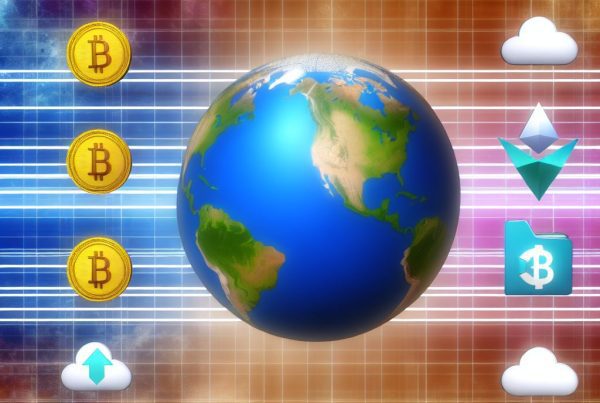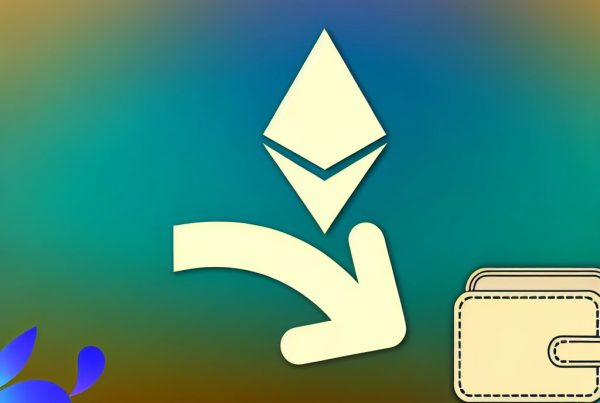NFTs Beyond Art: Real-World Applications
The rise of Non-Fungible Tokens (NFTs) has revolutionized the way we perceive ownership and value in the digital realm. While many associate NFTs primarily with digital art and collectibles, their potential extends far beyond these creative boundaries. This article delves into the diverse real-world applications of NFTs, showcasing how they are transforming various industries, enhancing transparency, and creating new opportunities in the cryptocurrency landscape.
Understanding NFTs
Before exploring the applications of NFTs, it’s essential to understand what they are. NFTs are unique digital assets verified using blockchain technology, which ensures their authenticity and ownership. Unlike cryptocurrencies such as Bitcoin or Ethereum, which are fungible and can be exchanged for one another, NFTs are one-of-a-kind and cannot be replaced with something else.
Each NFT contains distinct information or attributes that make it different from any other token. This uniqueness is what gives NFTs their value, allowing them to represent ownership of digital or physical items, including art, music, real estate, and more.
Key Features of NFTs
- Indivisibility: NFTs cannot be divided into smaller units, making them whole assets.
- Ownership: The blockchain records the ownership history, ensuring transparency.
- Interoperability: NFTs can be used across different platforms and applications.
- Scarcity: Creators can limit the number of NFTs, enhancing their value.
Applications of NFTs in Various Industries
1. Gaming
The gaming industry has embraced NFTs, allowing players to own in-game assets such as skins, weapons, and characters. These assets can be traded or sold on various marketplaces, providing players with real-world value for their time and effort.
For instance, Axie Infinity is a blockchain-based game where players breed, raise, and battle creatures called Axies. Each Axie is an NFT, and players can buy, sell, or trade them, creating a vibrant economy within the game.
2. Real Estate
NFTs are making waves in the real estate sector by simplifying property transactions and enhancing transparency. By tokenizing real estate assets, buyers can purchase fractional ownership of properties, making real estate investment more accessible.

For example, Propy is a platform that allows users to buy and sell real estate using NFTs. The entire transaction process is recorded on the blockchain, ensuring a secure and transparent transfer of ownership.
3. Music and Entertainment
Musicians and entertainers are leveraging NFTs to monetize their work directly. By issuing NFTs for albums, concert tickets, or exclusive content, artists can bypass traditional distribution channels and retain a larger share of the profits.
For instance, the musician Grimes sold a collection of NFTs that included exclusive music and artwork, generating millions in revenue. This model empowers artists to connect directly with their fans while creating unique experiences.
4. Fashion
The fashion industry is also exploring NFTs to authenticate products and combat counterfeiting. By linking physical items to NFTs, brands can provide proof of authenticity and ownership.
Luxury fashion house Prada has experimented with NFTs to create digital fashion items that can be worn in virtual environments. This innovative approach not only enhances brand engagement but also opens new revenue streams.
5. Supply Chain Management
NFTs can enhance supply chain transparency by providing a verifiable record of each step in the production process. By tokenizing products, companies can track their origins and ensure ethical sourcing.
For example, IBM has developed blockchain solutions that utilize NFTs to track the journey of goods from production to retail. This level of transparency builds consumer trust and promotes sustainability.
6. Identity Verification
NFTs can serve as digital identities, providing a secure and verifiable way to prove one’s identity online. This application is particularly relevant in sectors such as finance, healthcare, and education.
Platforms like uPort are exploring the use of NFTs for self-sovereign identity management, allowing individuals to control their personal data and share it selectively with trusted parties.
7. Ticketing
The ticketing industry is plagued by issues such as fraud and scalping. NFTs can provide a solution by offering secure, verifiable tickets that cannot be duplicated or forged.
For instance, Ticketmaster has begun experimenting with NFT ticketing, allowing event organizers to issue unique digital tickets that can be easily transferred or resold on secondary markets.
Case Studies of Successful NFT Implementations
1. NBA Top Shot
NBA Top Shot is a blockchain-based platform that allows fans to buy, sell, and trade officially licensed NBA collectible highlights. Each highlight is represented as an NFT, creating a new way for fans to engage with the sport.
Since its launch, NBA Top Shot has generated over $700 million in sales, demonstrating the potential of NFTs in the sports industry. The platform has attracted a diverse audience, from casual fans to serious collectors, showcasing the broad appeal of NFTs.
2. Decentraland
Decentraland is a virtual reality platform powered by the Ethereum blockchain, where users can buy, develop, and sell parcels of virtual land as NFTs. This innovative approach to virtual real estate has created a thriving economy within the platform.
Users can build anything from virtual homes to businesses, and the platform has hosted events, art galleries, and concerts, further enhancing its appeal. Decentraland exemplifies how NFTs can create immersive experiences in the digital world.
Challenges and Considerations
While the potential of NFTs is vast, several challenges must be addressed for widespread adoption:
- Environmental Concerns: The energy consumption of blockchain networks, particularly those using proof-of-work mechanisms, raises sustainability issues.
- Regulatory Uncertainty: The legal status of NFTs varies by jurisdiction, creating challenges for creators and investors.
- Market Volatility: The NFT market can be highly speculative, leading to price fluctuations that may deter potential buyers.
Future Trends in NFTs
The future of NFTs looks promising, with several trends likely to shape their evolution:
- Integration with the Metaverse: As virtual worlds expand, NFTs will play a crucial role in defining ownership and value within these environments.
- Increased Interoperability: Future developments may enable NFTs to be used across different platforms and ecosystems, enhancing their utility.
- Enhanced Utility: NFTs will likely evolve to offer more than just ownership, incorporating features such as access rights and royalties.
FAQs About NFTs
What are NFTs used for?
NFTs can represent ownership of digital art, music, virtual real estate, in-game assets, tickets, and more. They are used across various industries to enhance transparency and create new revenue streams.
How do NFTs work?
NFTs are built on blockchain technology, which records ownership and transaction history. Each NFT is unique and cannot be replicated, ensuring authenticity.
Are NFTs a good investment?
Investing in NFTs can be risky due to market volatility and speculative nature. Potential investors should conduct thorough research and consider their risk tolerance before investing.
How can I create an NFT?
To create an NFT, you need to choose a blockchain platform (like Ethereum), create a digital asset, and use an NFT marketplace to mint your token. Popular platforms include OpenSea and Rarible.
Conclusion
NFTs are proving to be more than just a trend in the art world; they are reshaping various industries by providing innovative solutions for ownership, authenticity, and engagement. From gaming and real estate to music and supply chain management, the applications of NFTs are vast and varied.
As the technology continues to evolve, it is crucial for stakeholders to address the challenges and embrace the opportunities presented by NFTs. By doing so, they can unlock new revenue streams and enhance consumer experiences in the digital age.
For the latest updates and insights on the cryptocurrency industry, including NFTs, visit Bitrabo.
Disclaimer: The information provided in this article is for informational purposes only and should not be considered financial advice. Always conduct your own research before making investment decisions.
The Crypto Watchlist of the Week 🔎
Subscribe to receive expert-curated projects with real potential—plus trends, risks, and insights that matter. Get handpicked crypto projects, deep analysis & market updates delivered to you.


